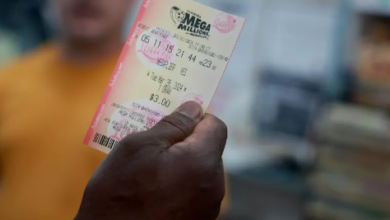Inside a Black Founder’s Winding Journey to Raising $4M


Atlanta-based tech founder, Barbara Jones, closed an oversubscribed $4 million seed round after pitching Serena Williams‘ Serena Ventures last year, for her retail-tech company, Lillii RNB — but it didn’t come easily.
It isn’t always clear; the nuanced ways that people experience bias in entrepreneurship. Jones faced challenges acquiring customers and pitching investors, who doubted her abilities because of her race, gender, and age.
BLACK ENTERPRISE sat down with Jones to learn more about how she overcame the obstacles in her journey.
Tell us about Lillii RNB and the problem it solves
Lillii RNB is a retail fraud detection, prevention, and data services firm founded in 2013 and based in Atlanta. Its proprietary solution, Freeing Returns™, optimizes the returns process for retailers, utilizes machine learning and artificial intelligence to spot organized retail crime, and helps loss prevention teams respond quickly.
With e-commerce really taking off since COVID-19, there is a lot of fraud online, especially with people claiming they didn’t receive items they ordered. It’s really hard for retailers to track that, so they usually send another one and the fraudsters get a return on both. It’s hard to tell now because you have all these different intermediary services that now deliver, like DoorDash and Instacart.
How were you able to grow your company?
This has been one of the hardest things I’ve done in my life. I had challenges because of bias — and people not believing that I could deal with a company like this as a Black woman. There aren’t many people in the space that look like me. Most of my competitors are male-led, Indian-led, you know, white-led. Once people found Lillii RNB, they were like “Wait a minute, who’s the founder, who’s the CEO of this company?” It was blatant. Many times. It really impacted my ability to sell, and some people would try to lowball me. It cost me sales early on.
Fortunately, this isn’t my first rodeo. I’ve been a part of two other retail tech startups that were both acquired for millions, one for $60 million, the other for $100 million. I was on the founding software development team as a coder, so I didn’t see everything they went through, but I know they didn’t go through the things I’ve been through. I saw them scale much faster than I was able to.
What has fundraising been like?
Going into the fundraising process, I thought, “Wow, I’m gonna raise so much money.” This is such a great idea; we’re fighting fraud. We’re building enterprise software as a service (SaaS), we’re looking at analytics and artificial intelligence (AI). We’re generating seven-figure revenue. I was so naïve in the beginning. I could not raise a dime — not a dime, until last year in 2021 I was able to raise funding, and I think it’s because of all the talk after George Floyd…and all the attention on underrepresented founders. That’s what changed.
Who were you pitching to?
Everybody! That was part of the problem. I cast a wide net because I had heard that I was going to pitch to 200 people, they’re all going to say no, and then one will say yes. But, I was losing the will to keep going after the no’s; they weren’t nice no’s. It was like, there’s “no way you can do this” or “this is all a bunch of crap.” Mean and arrogant no’s were really hurting my spirit. I was at the point where I almost said, “Forget it and I’ll just keep selling because I had already done over $1 million in sales.”
You mentioned a bad experience pitching an Angel group in Atlanta. Could you tell us more?
Yes, I haven’t specifically named the group in any interviews, but I pitched them at their headquarters. I walked in, excited and nervous. This was the first time I had pitched to any investor. There was no interaction from the group — people looked up from their phones, looked at me, and looked right back down. They were talking amongst themselves and laughing, nobody was paying attention to me.
Finally, after I finished setting up, one of the guys said, “I think that she’s ready to start.” When I started my presentation, there were smirks and then in the middle of the pitch, a white guy said something like, “You’re just blowing smoke. This will never work.” I mean, it was rude. They weren’t even paying attention. The conversation kind of started back up, and I finished and packed up my stuff to go. Nobody said, “Oh, thank you for pitching.”
As I walked out, the next person came in. He was a young, maybe college level, white male. I saw that the group lit up and asked, “Oh, wow, what are you showing us today?”
I have 20-plus years in a retail tech space. I came from two other retail tech startups that were acquired. I was a part of the founding tech teams. But this white guy walks in and he’s in college, and everyone welcomed him. I walked out, and I was so mad I though, “I will never pitch to them again.”
What was the shift in strategy that led to more successful pitches?
I started working from a curated list of people that invested in people who look like me, or companies like mine; they had some type of social impact where they wanted to invest in underrepresented founders. That’s when things changed and I started getting yes’ — beautiful yes’. One investor told me, “Barbara when you pitched to me…I just had goosebumps all over my arms.” She said, “I was just so excited.”
I thought, “Whoa, this is so different from what I was getting before.” I was able to raise over $4 million within 12 months and 90% of my investors are Black-led funds and 70% are Black, women-led funds. That was the secret. I found my tribe, and they believed in me from the get-go. They didn’t have any doubts that I could do this. So, really, it’s about finding the right people to pitch to.
Which funds invested in Lillii RNB?
Serena Ventures led our seed round, along with Aperture Ventures. We also got support from Morgan Stanley’s Multicultural Accelerator Program led by Carla Harris and Alice Vilma; Melissa Bradley out of 1863 Ventures; Bronze Valley out of Birmingham, Ala.; and Google for Startups. Jewel Burke is leading the effort with the Google for Startups Black Founders Fund. Those Black-led funds were the ones that invested in me. Once Serena signed that term sheet, my round closed so fast. So many people were in line to invest, the round was oversubscribed, and now we have a waitlist for our Series A.
What tips or strategies do you recommend for entrepreneurs currently fundraising?
Curating my list and not pitching to everybody, hurting my self esteem in the process, is what changed the game for me. The other thing I would say [played a part] was the ecosystem. I was around people that helped me with my pitch deck. It started out rough and it wasn’t the prettiest deck. I went through a few incubator programs, accelerator programs, and they helped me create a very professional deck. I had this beautiful — I call it a million-dollar deck.
Then I got coaching on how to pitch. I’m a coder, and I was introverted and shy. I did a lot of work on myself and pitched over and over again. With those three things, my curated list, a beautiful deck, and that confidence, I went into meetings thinking they should have a fear of missing out (FOMO). I thought, “If you don’t want to invest, that’s on you. You’re missing out. I’m moving on to the next meeting because I’ve got three more today!” That was my attitude.
Where can people support Lillii RNB?
You can follow us on socials @LillliiRNBInc and visit http://www.lilliirnb.com. To learn more about the Freeing Returns™ platform, follow us @freeingreturns and visit http://www.freeingreturns.com.
[ad_2]
Source link





